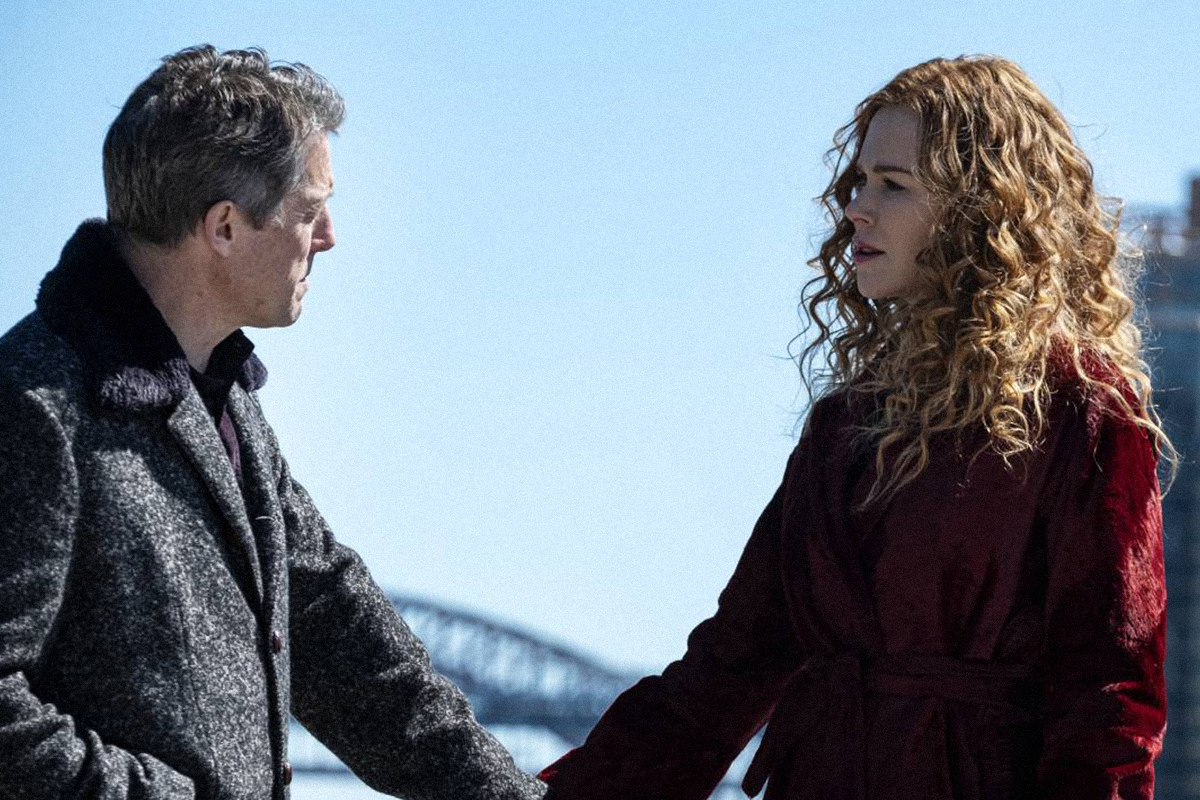Like many others, I recently finished The Undoing, the HBO miniseries starring Nicole Kidman and Hugh Grant about a rich Manhattan private school that’s rocked by the gruesome murder of one of the mothers.
With episodes dropping weekly, each Sunday night set social media ablaze, with people weighing in on their theories of who they think killed Elena. The miniseries was based on Jean Hanff Korelich’s 2014 novel, You Should Have Known, which I have not read but which is apparently very Jewish. The show is many things, but overtly Jewish it is not.
Alex Klausner recently wrote for Alma questioning writer David E. Kelley’s decision to White-Anglo-Saxon-Protestant-wash The Undoing, lamenting how it loses all the cultural Jewish references that make the book so relatable. While I’m all for authentic Jewish representation in pop culture, I have a theory about why Kelley may have made that choice.
Although the book centers on Grace’s (Kidman in the series) development and function as a sort of character study, the show is a murder mystery, with each episode ending on a cliffhanger to leave viewers in suspense. Religion doesn’t play a significant part in the series, and the Frasers’ identity revolves more around their wealth: the expensive private school, the spacious uptown apartments, the fundraising committees. For all we know, they could be Jewish—we’re not told one way or another.
While in the book, Grace goes through an identity crisis and rediscovers Jewish traditions to become whole, her character arc in The Undoing is not so much of a bell curve as it is a nose dive off a cliff. It’s built in sly glances and a dialogue-less walk through the park that ultimately culminate in (spoiler) her putting herself on the stand to ensure that Jonathan (Grant) gets convicted of murder. With most elements of the show being so understated that you’d miss them if you answer a text, there’s not much room for a nuanced portrayal of what it means to be Jewish, the way there was in the novel.
But that’s not the only reason why I believe it was actually better for the Frasers to not be Jewish in the show. Grace and Jonathan are objectively pretty terrible characters. Interesting and compelling characters, yes, but if we were to take them as people, they would be the worst. Jonathan is (again, spoiler) a probable narcissist and a definite murderer. He’s also a liar and an adulterer. Grace is, at best, shockingly naive, and at worst, stupid to the point of it almost being harmful. She willingly speaks to police on multiple occasions, which always hurts more than it helps. She bails Jonathan out of prison to the tune of $2 million when she herself is not convinced of his innocence. She never retains her own attorney even when the police imply she could be a person of interest.
Of all the characters to give representation to Jewish people, these are not the ones I would pick.
The lead-up to and aftermath of The Undoing were big weekly events, especially on social media, where Real Housewives and Grammy-nominated rappers alike were sharing their theories of who they thought killed Elena. Nicole Kidman herself was even leaving Instagram comments about it. I probably don’t have to tell you that social media is not always a safe place for Jews, or for any marginalized group, for that matter.
According to the Anti-Defamation League’s “The State of Antisemitism In America 2020” report, about 62% of American Jews have been the targets of antisemitic remarks on Facebook and about a third have on Twitter. At the same time, the survey responses indicated that non-Jewish people don’t really care if a Jew points out something as harmful to Jews; 65% said it would make no difference to them if a Jewish organization or individual considered a statement or idea to be antisemitic. Those with large platforms are not immune to disseminating harmful rhetoric, whether wittingly or not: In the last six months alone, celebrities, politicians, and other public figures have publicly shared harmful antisemitic stereotypes and conspiracies.
The finale of The Undoing drew in the biggest audience to an HBO series since July 2019, when Big Little Lies‘ first season finale aired. Three million people tuned in across its platforms to watch what would become of the Frasers. With so many eyes on it, I have to wonder what good would it have ultimately done to make Grace and Jonathan’s Jewishness an explicit plot point. Their actions on the show could have arguably played into reinforcing negative Jewish stereotypes. They’re extremely wealthy; they attempt to use the media as a manipulation tool (with Jonathan’s interview); and they influence the justice system (with Grace’s stunt on the witness stand). I shudder to think what social media would have had to say about that.
This is not to say that Jews are not capable of committing crimes, and should never be depicted doing anything bad. In fact, Allison Darcy recently made a compelling case in AIma for more Jewish villains, one I don’t necessarily disagree with (minus the notion that Miranda Priestly is the villain of The Devil Wears Prada—the real villain is Nate).
I guess that when deciding how to portray antagonists, especially when adapting them from other works and deciding which characteristics to include or omit, it’s a cost-benefit analysis. Some people might have preferred Kelley took that risk. For me personally, if given the choice between relatability and a potentially dicey portrayal, I can do without the whitefish.



